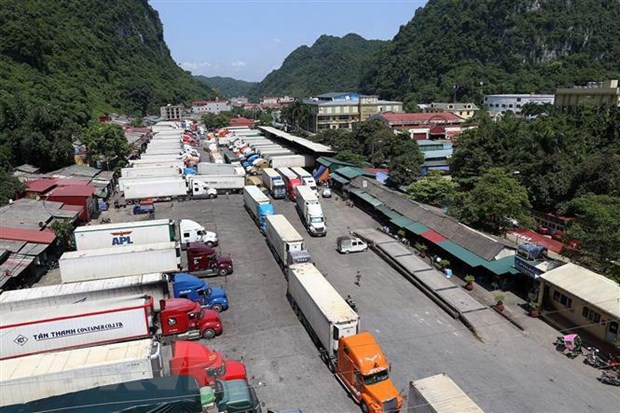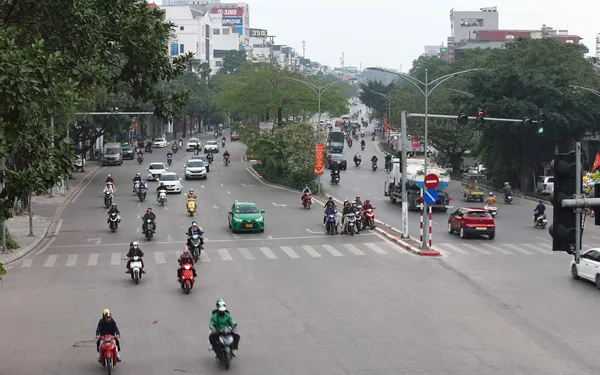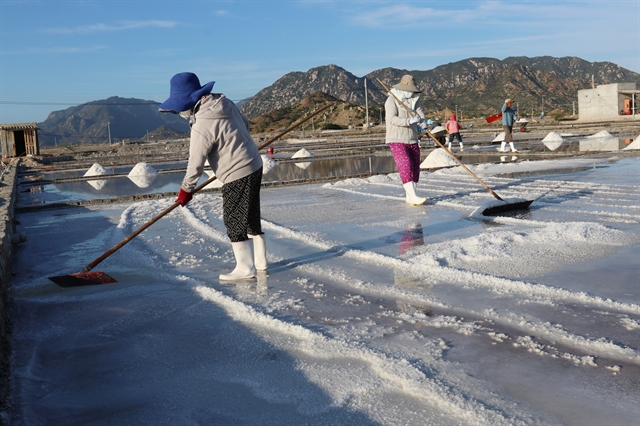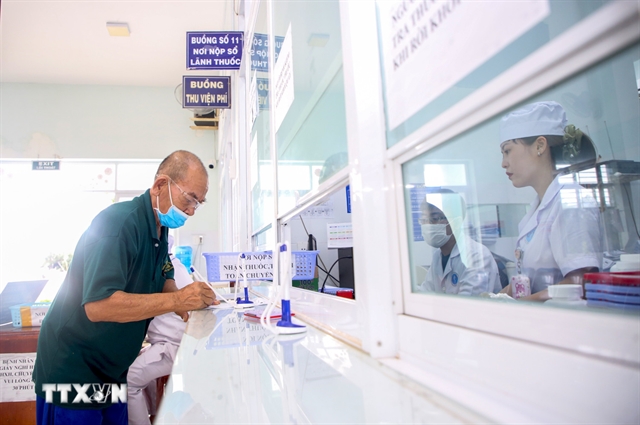 Economy
Economy

Since May last year, China has imposed much stricter import regulations on fruit from Thailand and Việt Nam, asking for prior clearance papers from sanitary control agencies as well as certificates of origin.

|
| Hundreds of trucks wait at Tân Thanh-Pò Chài Border Gate for customs inspection. — VNA/VNS Photo |
HÀ NỘI — Local authorities on both sides of the Việt Nam-China border have agreed to work extra hours to allow more Vietnamese agricultural goods to cross the border into China, said Nguyễn Công Trưởng, deputy chairman of border province Lạng Sơn's People Committee yesterday.
Trưởng said the Tân Thanh-Pò Chài Border Gate was to remain open until 9.30 pm, two and a half hours longer than usual to let in some 370 container trucks and their drivers, who were still waiting for customs clearance by yesterday afternoon on Việt Nam's side. The gate would open from 6am per usual.
Chinese customs said they would make an exception and allow Vietnamese trucks to cross over to China before undergoing inspection to hasten the process. They also asked Vietnamese businesses to complete all necessary papers in advance and strictly follow China Custom's regulations on contraband, especially the ban on fresh pork. The situation was expected to be resolved by tomorrow, according to local customs officials.
In the last couple of days, the province has seen a sharp increase in the number of trucks, most of them transporting dragon fruits, making their way to the border as Vietnamese farmers completed their harvest. Thanks to co-operation from both sides, customs agencies have been able to inspect and clear 150-200 trucks per day, said Trưởng.
Another factor was increased scrutiny from the Chinese side.
"It takes six to seven minutes to inspect a truck now as compared to around two minutes prior to the change," said Nguyễn Quốc Hải, deputy-director of the province's department of industry and trade.
"It has slowed down the process significantly as well as created a large backlog of trucks waiting to cross over."
Since May last year, China has imposed much stricter import regulations on fruit from Thailand and Việt Nam, asking for prior clearance papers from sanitary control agencies as well as certificates of origin.
Vũ Thị Nguyệt, the owner of a Vietnamese fruit export company, said Chinese customs would inspect every single truck now.
She said the worst is yet to come as the watermelon harvest is just around the corner.
"Chinese customs ban the use of straw to help preserve fruits. This will make it harder for Vietnamese exporters because traditionally we have always used straw to help cushion our watermelons during transport. For the time being, we do not know of an alternative to straw," Nguyệt said.
Experts have long pointed out a lack of planning and poor infrastructure were major hurdles Vietnamese agriculture must overcome. Vietnamese businesses and farmers are often slow to catch up with the Chinese market's developments, which has resulted in occasional over-supply and poor product quality.
Trần Thanh Hải, deputy head of the department of import/export under the Ministry of Industry and Trade, said the immediate priority is to keep Vietnamese businesses and farmers up-to-date on China's latest regulations on sanitation, packaging, origin of product and quality control.
The ministry would also start talks with their Chinese counterpart to allow Vietnamese goods to cross other border gates such as Chi Ma, Na Hình and Bình Nghị to ease the pressure on the Tân Thanh-Pò Chài Border Gate.
In another development, Deputy Prime Minister Vương Đình Huệ asked for Yunna Province's co-operation in resolving the matter in a meeting with the province's deputy party chief in Hà Nội yesterday.
Chinese ambassador to Việt Nam Xiong Bo said a sudden spike in the amount of agricultural products coming from Việt Nam was not expected during this time of the year and Chinese local authorities have been instructed to resolve the issue. VNS




